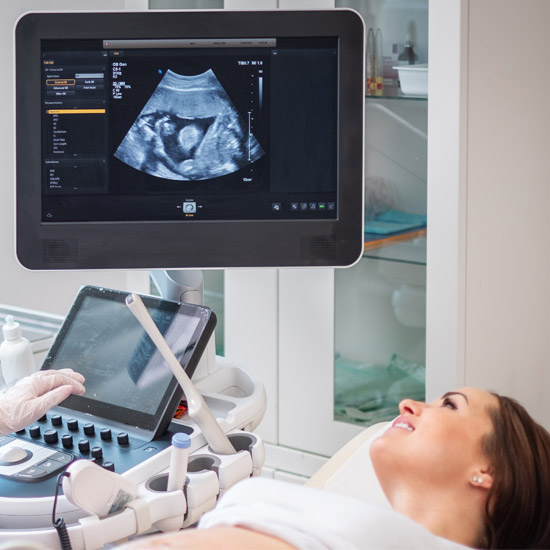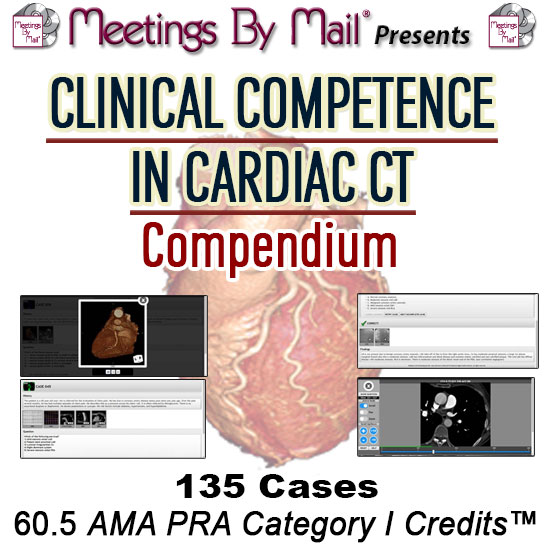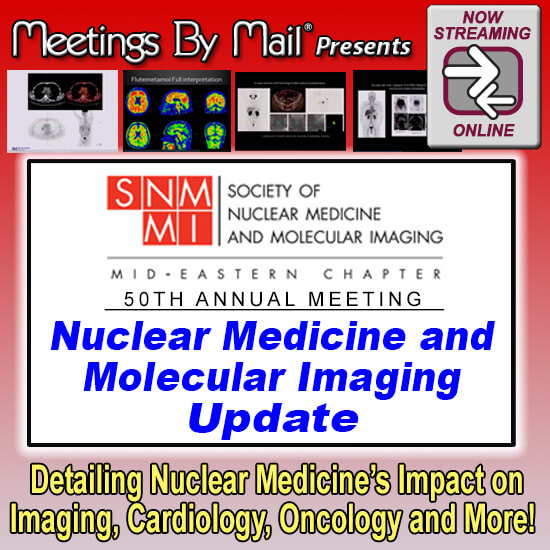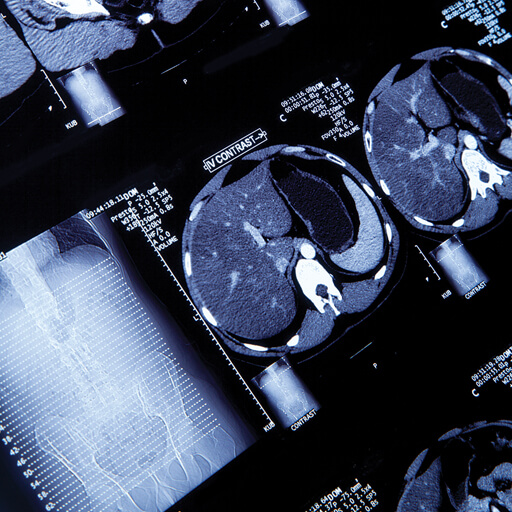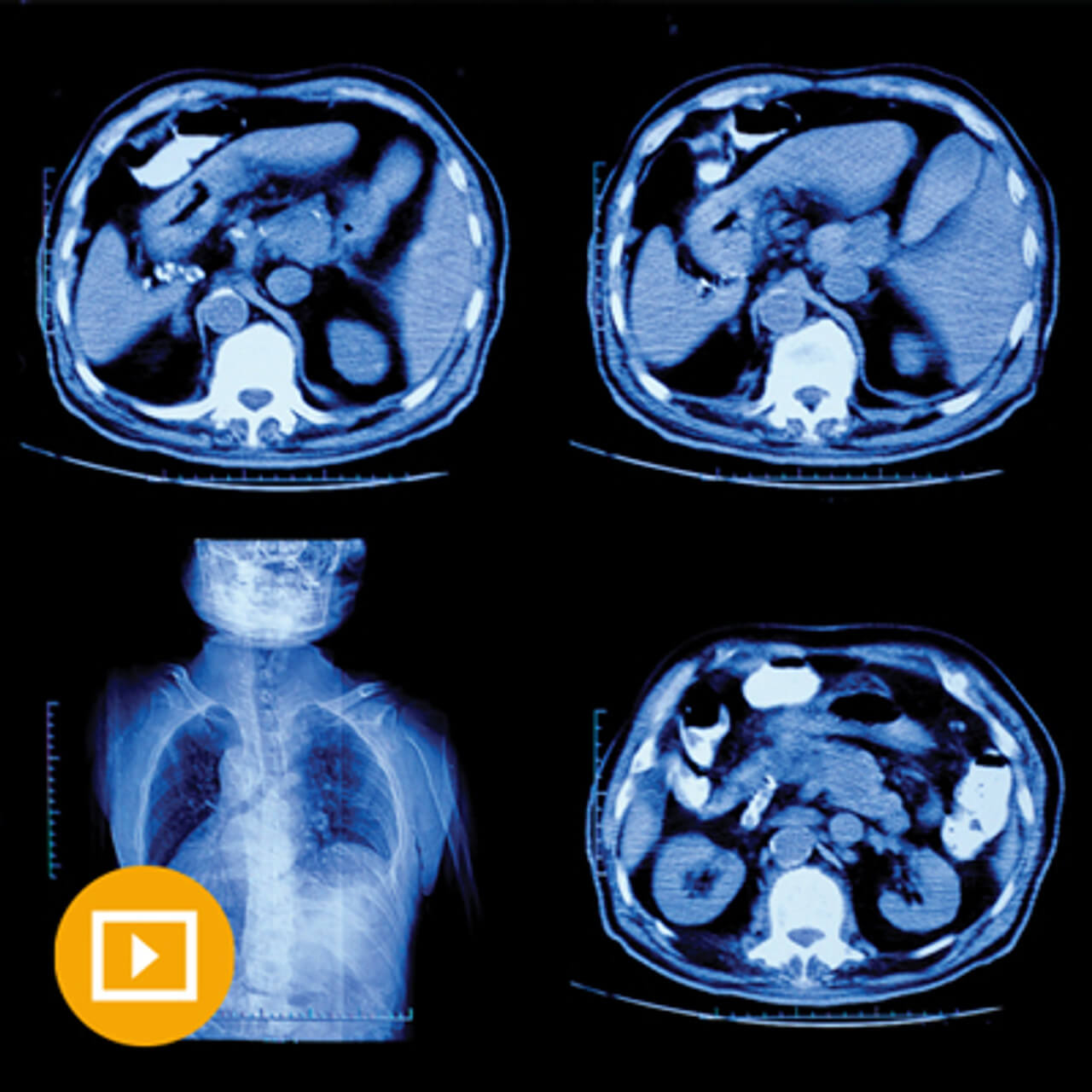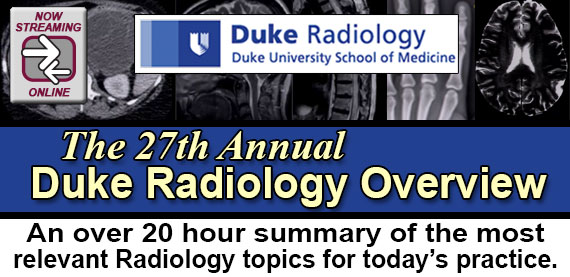Radiology CME
76 - 86 of 86 results
-
ImageSim First Trimester Pregnancy Transvaginal Point-of-Care Ultrasound Interpretation
Sharpen Your Diagnostic Skills with the ImageSim First Trimester Pregnancy Point-of-Care Ultrasound – Transvaginal (TV-FTPOCUS) Course. Step into the role of the clinician with 200 authentic patient TV- FTPOCUS videos and images in a high-impact, interactive diagnostic experience. Developed by world-renowned leaders in emergency medicine, uers-design, and medical education, this course offers a cutting-edge learning platform designed for clinicians who demand excellence. Each case presents a concise clinical scenario, challenging you to “make the call” on whether an intrauterine pregnancy is present or absent. In the next step, you would either locate the intrauterine pregnancy or the expected location of the intrauterine pregnancy. Finally, you would select from pick list any of the other pregnancy associated imaging findings: fetal heartbeat, multiple gestations, eccentrically located gestational sac, subchorionic hemorrhage, pelvic free fluid, ectopic pregnancy, and endometrial fluid collection. Immediate feedback after every case keeps you sharp and accelerates your learning.
The goal? Mastery at 90% accuracy—a benchmark that ensures real-world confidence and performance. Perfect for physicians and allied health care professionals in emergency medicine, urgent care medicine, pediatric emergency medicine, radiology and obstetrics, this course will elevate your interpretive skills with a technology that is rapidly integrated into bedside decison-making.
See full details chevron_right- Cost: $250
- Credit hours: 33
- CME credits awarded by: This enduring activity is accredited by the Royal College of Physicians and Surgeons of Canada (RCPS) for Section 3 credits, the College of Family Physicians Canada (CFPC) for MainPro+ credits, and the American Board of Pediatrics (ABP) for MOC Part II credits. 33 RCPS Section 3 hours are equivalent to 100 RCPS Section 3 credits, 33 AMA PRA Category 1 Credits, 33 CFPC MainPro+ credits, 33 AAFP credits, and 100 ABP Level II MOC credits. Royal College of Physicians and Surgeons accreditation also has reciprocal arrangements for European registrants with the EACCME and EUS and registrants with the Qatar Council for Health Care Practitioners (QCHP).
- Format: On-Demand Online
- Expiration of CME credit: There is lifetime access to the courses to complete five full cycles of cases.
-
UNAVAILABLE
Medmastery CME Imaging/Radiology Collection
The Medmastery CME Radiology/Imaging Collection offers clinicians 67 AMA PRA Category 1 Credits™ and includes fully accredited courses covering a range of topics including cardiac MRI, chest x-ray, and brain CT.
Additionaly you get access to a wide range of courses anc case-based workshops offering a total of 385 CME credits.
See full details chevron_right- Credit hours: 67
- CME credits awarded by: ACCME & EACCME
- Format: On-Demand Online, Online Video
- Expiration of CME credit: 05/20/2025
-
UNAVAILABLE
GIBLIB CME Plan
GIBLIB is an on-demand streaming medical education platform where physicians and advanced practice providers go to learn and earn CME through convenient, high-quality educational content created by trusted experts from the world’s top hospitals.
With this purchase, you get a 1-year subscription to GIBLIB and the following features:
- Earn unlimited AMA PRA Category 1 Credits™
- Full library access to thousands of videos across all specialties
- Personalized and curated video recommendations
- Cross-device viewing on web and iOS
- New content released and available every week
- Create custom playlists that you can personally curate
- Bookmark videos for later viewing
- Take notes on specific content and review for later
- View transcripts of all videos, available in multiple languages
- Credit hours: Unlimited
- Format: Videos, Audio, Podcasts, Transcripts (on every Video)
-
UNAVAILABLE
Penn Radiology Emergency Imaging After Hours
Penn Radiology Emergency Imaging After Hours provides insight for imaging conditions where rapid response is required. An elite faculty guides learners with practical lessons in modality choice, image acquisition and interpretation skills for a wide range of clinical presentations. Selected topics in chest, neuroradiology, abdominal, pelvic, pediatric and musculoskeletal imaging are presented to ensure confident analysis, so the practitioner is never outside of their comfort zone. Worth up to 15.75 AMA PRA Category I Credits™, all applicable as SA-CME for Maintenance of Certification requirements.
See full details chevron_right- Credit hours: 15.75
- CME credits awarded by: Global Education Group
- Format: On-Demand Online
- Material last updated: 5/20/2022
- Expiration of CME credit: 5/19/2025
-
UNAVAILABLE
Penn Radiology Current Concepts in Breast Imaging
Penn Radiology’s renowned faculty combines with other internationally acclaimed experts to present Current Concepts in Breast Imaging. This activity features a review of fundamentals and the latest medical technology designed to improve interpretation skills for digital breast tomosynthesis, breast ultrasound, MRI and digital mammography. Biopsy tips and tricks will be provided as well, insuring a well rounded educational experience for all breast imagers. Worth 17.75 AMA PRA Category I Credits™, Current Concepts in Breast Imaging meets MSQA CME requirements, and all credits count toward SA-CME requirements for ABR maintenance of certification.
See full details chevron_right- Credit hours: 17.75
- CME credits awarded by: Global Education Group
- Format: On-Demand Online
- Material last updated: 6/20/2022
- Expiration of CME credit: 6/19/2025
-
UNAVAILABLE
Clinical Competence in Cardiac CT Compendium
Supplemented with all new presentation content and worth up to 60.5 AMA PRA Category I Credits™, the Clinical Competence in Cardiac CT Compendium will help meet credentialing and/or maintenance requirements for Cardiac CT. Each case features a simulated workstation, with hundreds of datasets of fully navigable imagines, supplement diagnostic materials and detailed description of findings by expert faculty.
See full details chevron_right- Credit hours: 60.5
- CME credits awarded by: Global Education Group
- Format: On-Demand Online
- Material last updated: 9/5/2022
- Expiration of CME credit: 9/4/2025
-
UNAVAILABLE
Nuclear Medicine & Molecular Imaging Update
The Mid East Chapter of the Society of Nuclear Medicine and Molecular Imaging’s historic 50th Annual Conference presents nuclear medicine’s latest trends, advances and procedures. Adapted for the enduring material audience, Nuclear Medicine and Molecular Imaging Update features a dozen faculty members presenting this specialty’s impact on imaging, cardiology, neurology, endocrinology, oncology, rheumatology, pediatrics and much more. Practice enhancements and professional development will be discussed, as well. Nuclear Medicine and Molecular Imaging Update provides a well rounded refresher for all physicians and technologists involved with this area of medicine.
See full details chevron_right- Credit hours: 12
- Material last updated: 8/20/2022
- Expiration of CME credit: 8/19/2025
-
UNAVAILABLE
Oakstone CME NYU Langone’s Head to Toe Imaging
Explore the Latest in Radiology Imaging CME
NYU Langone’s Head to Toe Imaging offers an intensive review of essential and cutting-edge imaging techniques in all modalities. Presented by a collaborative team of imagers and clinicians attentive to safety, quality, and economic imperatives, this online CME program emphasizes standardized imaging strategies that support the imperative for clinical decision support. Under the direction of Georgeann McGuinness, MD, FACR, speakers deliver case-based sessions and continuing medical education content that will help you to better:
- Evaluate and incorporate current imaging techniques and protocols for sub-specialty imaging into clinical practice
- Describe the current imaging methods and protocols for deep pelvic endometriosis
- Review complications of COVID-19, including the emerging myriad manifestations of ‘long hauler’ disease
- Optimize and incorporate a gamut of studies, including CT, MR and PET to accurately stage neoplasms with minimal cost and radiation exposure
- Develop protocols to optimize radiation safety and dose reduction in CT
- And more…
Educational Objectives
After participating in this activity, clinicians should be able to:
- Evaluate and incorporate current imaging techniques and protocols for sub specialty imaging (Abdominal, Musculoskeletal, Neurologic, Thoracic, Cardiac, Breast, PET/CT, Emergency Medicine, Interventional) into clinical practice to enable accurate diagnosis, dictate best therapy options, and assess response to therapy, which may prompt therapy modification as needed
- Describe the current imaging methods and protocols for deep pelvic endometriosis
- Review the acute manifestations and complications of COVID-19, and increase awareness of the subacute & longer manifestations seen in COVID-19 survivors, including the emerging myriad manifestations of ‘long hauler’ disease
- Develop strategies to optimize and incorporate a gamut of studies, including CT, MR and PET, in order to accurately stage neoplasms with minimal cost and radiation exposure
- Develop imaging protocols and techniques to optimize radiation safety and dose reduction in CT, as well as utilize MR imaging in appropriate patient populations, without compromise to diagnostic quality and accuracy of imaging
Target Audience
The program is designed for clinical radiologists in either general or specialized practice, and is appropriate for radiologists in training. Familiarity with the fundamentals of CT, MR, PET, and US technology and applications, as well as basic anatomy, is assumed.
See full details chevron_right- Credit hours: 37
- CME credits awarded by: Oakstone Publishing, LLC.
- Format: On-Demand Online, Online Video
- Material last updated: February 1, 2022
- Expiration of CME credit: January 31, 2025
-
UNAVAILABLE
Oakstone CME UCSF Abdominal and Thoracic Imaging
Radiology CME: Explore Abdominal and Thoracic Imaging
Designed for both the general and specialized radiologist, UCSF Abdominal and Thoracic Imaging is an online CME course providing an extensive review of clinically relevant topics in chest, abdominal, pelvic, and ob-gyn imaging. Speakers discuss interpretation tips for both routine and emerging applications, artificial intelligence and its implications in clinical practice, and more.
You get case-based continuing medical education lectures targeting relevant areas of focus, including:
- Abdominal — female pelvis, acute pelvic pain in the reproductive age female, early and ectopic pregnancy, male pelvis and prostate, gastrointestinal conditions including the liver, and organ transplants
- Thoracic — lung cancer screening, pulmonary embolism, mediastinal masses, chest radiographs, and other findings and indications relevant for the general radiologist
- Credit hours: 23.5
- CME credits awarded by: Oakstone Publishing
- Format: On-Demand Online, Online Video
- Material last updated: April 16, 2022
- Expiration of CME credit: April 15, 2025
-
UNAVAILABLE
27th Annual Duke Radiology Overview
Meetings By Mail presents the 27th Annual Duke Radiology Overview, a 21-hour summary of the most relevant topics affecting today’s Radiology practice.
This activity includes 40 Duke Radiology faculty members covering multiple modalities in many different subspecialties.
Topics covered in the 27th Annual Duke Radiology Overview include:
Thoracic, abdominal, pediatric, neuro, interventional, musculoskeletal, and women’s imaging, as well as nuclear medicine. Special focus is placed on cutting-edge advances and procedures. Additionally, all credits for this activity count as SA-CME for your Maintenance of Certification requirements. Available in online streaming and DVD-ROM formats.Target Audiences: Radiologists
See full details chevron_right- Credit hours: 21
- CME credits awarded by: Global Education Group
- Format: On-Demand Online, DVD-ROM
- Material last updated: September 15, 2017
- Expiration of CME credit: September 14, 2020
-
UNAVAILABLE
Institute for Advanced Medical Education
The site contains over 50 courses in medical imaging. The majority of offerings are in obstetrical ultrasound. Some nice pictures of black-and-white and color Doppler images.
Some new courses include:
• Vascular Laboratory Markers of Cardiovascular Risk
• Principles of OB/GYN Sonography
• Buzzwords in Sonography
• Digital Breast TomosynthesisTarget Audience: Physicians specializing in OB-GYN, Radiology
See full details chevron_right- Credit hours: 1-3 per course
- CME credits awarded by: Institute for Advanced Medical Education.
- Format: On-Demand Online, Online Video

